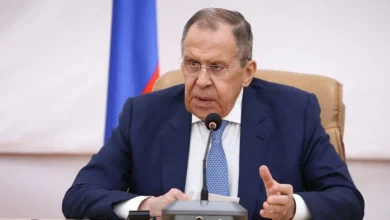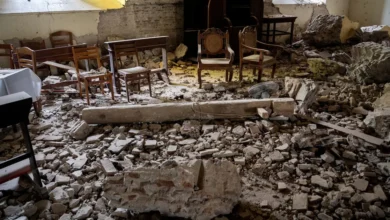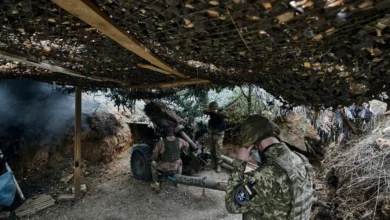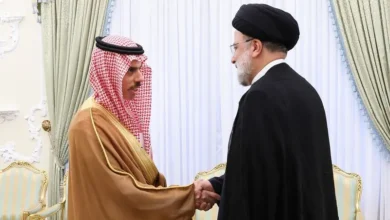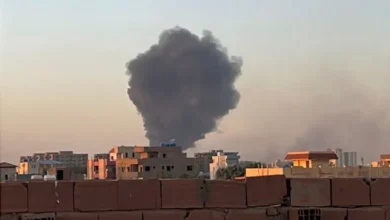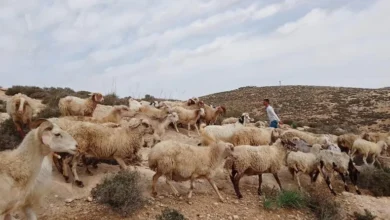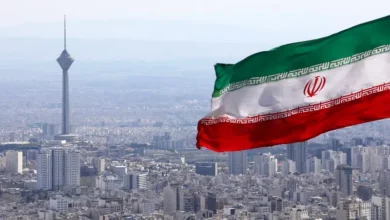Living in ‘an oven’: Heatwave grips displacement camps in Syria
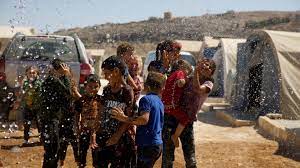
Under a scorching sun, Hamida Dandoush sprinkles water on her tent in an attempt to cool it down, hoping to alleviate the high temperatures for herself and her family.
The 62-year-old woman from the town of Maardabsah is residing in the Saharah camp near the Syrian-Turkish border, where approximately 80 displaced families are enduring harsh living conditions amid the intense heatwave striking the region.“We live as if we are inside an oven, struggling to breathe due to the heat inside the tent. If it weren’t for the water we sprinkle on the tent, we would have died from the intense heat,” Dandoush told Al Jazeera on Saturday.
Dandoush, who lives in a tent with her daughter and grandchild, said that every day she makes seemingly futile attempts to cool things down, including placing her grandchild in a plastic container and pouring cold water over him.
“If elderly people like us cannot bear this weather, how can young children?” said Dandoush. “Yesterday, my grandson started trembling and had difficulty breathing, so we took him to the hospital, and they told us it happened due to the heat inside the tent.”
Warm weather affecting displaced people living in camps in northwest Syria is expected to escalate in the coming days, further exacerbating the suffering of those living in tents, which lack cooling mechanisms and are made of nylon fabric that intensifies the reflected heat.The Syrian Civil Defence, also known as the White Helmets, has warned people not to expose themselves to the sun for prolonged periods in the coming days as temperatures rise above 42 degrees Celsius (108 degrees Fahrenheit). They also advised increasing water and fluid intake to avoid dehydration and cautioned against placing gas cylinders in the sun to prevent fires.
“The heatwave coincided with an increase in the number of fires in the current month. Our teams have extinguished more than 200 fires since the beginning of this month, including 93 fires in agricultural lands, 21 fires in forests, 36 fires in civilian homes and 10 fires in displacement camps,” said Ahmad Yazji, a board member of the Syrian Civil Defence.
The Syrian Civil Defence teams conduct field visits to displacement camps to assess their conditions and provide necessary guidance to mitigate illnesses accompanying the rise in temperatures, in addition to providing essential healthcare.
“We provide water to schools and camps, as well as moisten some streets to reduce dust and break the heat,” said Yazji.Hazem al-Hajji, a 30-year-old displaced person from southern Idlib countryside living in one of the camps near the Syrian-Turkish border, gathers children from the camp and sprays them with water, trying to entertain them and alleviate the intensity of the heat.
“Our children endure more than they can bear. As soon as the freezing cold of winter is gone, they are struck by the scorching summer that exhausts their frail bodies,” said al-Hajji.
Al-Hajji told Al Jazeera that most of the tents lack any cooling means, except for water, and if there is any, it usually consists of a fan that does not provide any relief except for moving hot air. “We eagerly wait for the absence of the sun to give our bodies a little rest from the exhausting heat,” said al-Hajji.The high temperatures have led many people in the region to seek public pools, which are considered safer than other bodies of water.
“My children and I came to the pool after our water tank ran out due to excessive use caused by the high temperatures,” said Khaled Barakat, a 42-year-old displaced person from the town of Hazarin in the Idlib countryside living in one of the random camps near Idlib city.More than 811 camps in northwest Syria suffer from a lack of necessary water, while other camps cope with reduced water allocations due to a decrease in water support from donor organisations and increased water consumption caused by rising temperatures, according to Syria Response Coordination Group, a local humanitarian organisation.
“Our suffering will only end when we return to our villages from which we were displaced by the Assad regime and Russia,” said Barakat.


